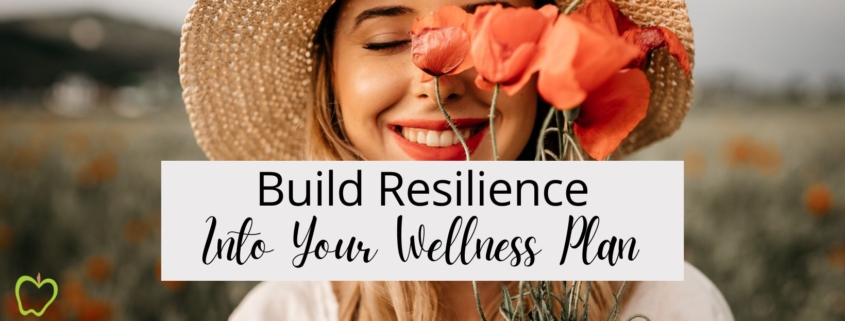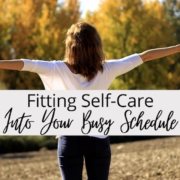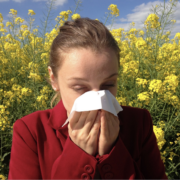Build Resilience Into Your Wellness Plan
What does resilience have to do with your health? It is actually foundational to navigating life well. When I speak of wellness, I don’t mean a total absence of sickness, but rather the body being able to rebound after a short period of sickness. This is very different than the experience of many who live with chronic disease which makes them more susceptible to germs that are shared in their communities. Follow these ideas to help build resilience into your wellness plan.
What Reduces Resilience?
Resilience is defined as rebounding or returning to the original position after being bent or stretched. When our bodies are already stressed with dis-ease, our immune system is focused there.
It may not catch a new invader or just not have the bandwidth to handle a battle on many fronts. And our resilience is challenged.
We saw this during the pandemic. Those who struggled most with Covid were usually people who already had at least one chronic disease. Their immune systems weren’t able to handle the added battle.
I was shocked that there was little encouragement to work on resolving the “comorbidities” and support the immune system. But then, mainstream medicine doesn’t acknowledge that diabetes, IBS, autoimmune disorders, and such can be resolved.
That’s where Functional Medicine shines. We look at the contributing factors – be it nutritional deficiencies, food reactions, stress, hormonal imbalance, or lifestyle. Making changes in how the body is supported can equip the body to resume normal function. You have the power to improve your resilience by shifting your daily practices.
Eat Real Food
What defines real food? Basically, food that was around 70 years ago. That disqualifies about 80% of what we find in the grocery store today. Shocking, isn’t it?
Food manufacturers began to develop ultra-processed foods with the spoken intention of simplifying the work of feeding a family. TV dinners, frozen lasagna, canned pastas, and numerous boxed kits began to be consumed regularly. But at what cost to our health?
I recently read an interesting book, Ultra Processed People, by Chris Van Tulleken, that has opened my eyes even more to the effects of ultra-processed food on the body. I’ll share more in a future blog post, but suffice it to say, if you are concerned about your health, minimize foods in boxes, bags, and cans and reclaim your health with whole foods.
Hydration Means Water
Water, water, water. Are you tired of hearing me say that you need to drink more water? Have you tried it? Seriously, your body is 70% water, which means that water is essential to its function.
Most of us drink a lot of beverages that are water-based and assume that meets the need. Yet the ingredients that make the beverages so tasty, hinder the use of the water for hydration. Water (without the chemical flavor drops) and herbal tea are drinks your body can use.
Sleep Is Vital
Ever noticed that when you are sick your body presses you to sleep more? It’s because your body needs to be able to do the work of fighting and recovery. And this is necessary every day.
Our bodies are so amazing in their ability to handle challenges that are encountered throughout the day without our being aware. But they still need a daily opportunity to regroup and restore normal functions, and that requires us to sleep 7-8 hours a day. If you struggle to sleep, it would be worthwhile to reach out to me to talk about it.
The Mind-Body Connection
I used to think that our brains controlled everything that was going on in our bodies … until I began studying Functional Medicine. In fact, there’s a two-way communication going between mind and body.
The body is sending feedback to the mind about its function and needs. And, the body is also monitoring the mind’s thoughts related to its perception of the safety of the environment.
If stress is causing you to experience “monkey mind,” your body will respond with added vigilance and reaction to what you encounter. Bringing your mind into the process of reclaiming your health is an important aspect of the journey. Try some breathing techniques for better health.
Ground Yourself In Nature
One way to calm your mind and body is to spend time in natural settings. I often recommend that my clients take walks outside. The movement is important, and being outdoors adds another benefit to the activity.
If you spend time playing with your kids outside, kick your shoes off and go barefoot in the grass. This will allow your body to absorb electrons from the earth that help to calm your systems.
Other options could be gardening while barefoot, sitting outside with bare feet on the ground while you read, or walking on the beach. What creative ways can you find to be exposed to the earth for 10 minutes a day?
Need Help Building Resilience?
Have you noticed a need to build resilience into your life? It’s not a switch that you flip, but rather a shift in daily habits that support the function of your body. This was one of the foundational concepts of my latest book, Thriving Through Cancer: A Whole-istic Approach For Your Journey.
While intended to help cancer patients support the rest of their body – the part that doesn’t have cancer – through the treatment journey, those concepts actually apply to every body. Yours too!
And, I’m offering a new program called Resilient! 30 Days to Empower You For Resilience & Vitality, and I invite you to consider embarking on this valuable effort.
No matter what your situation is currently, I believe in the body’s resilience. If your body doesn’t seem very resilient today, you can begin to make changes to become resilient! I’m here to help you.









